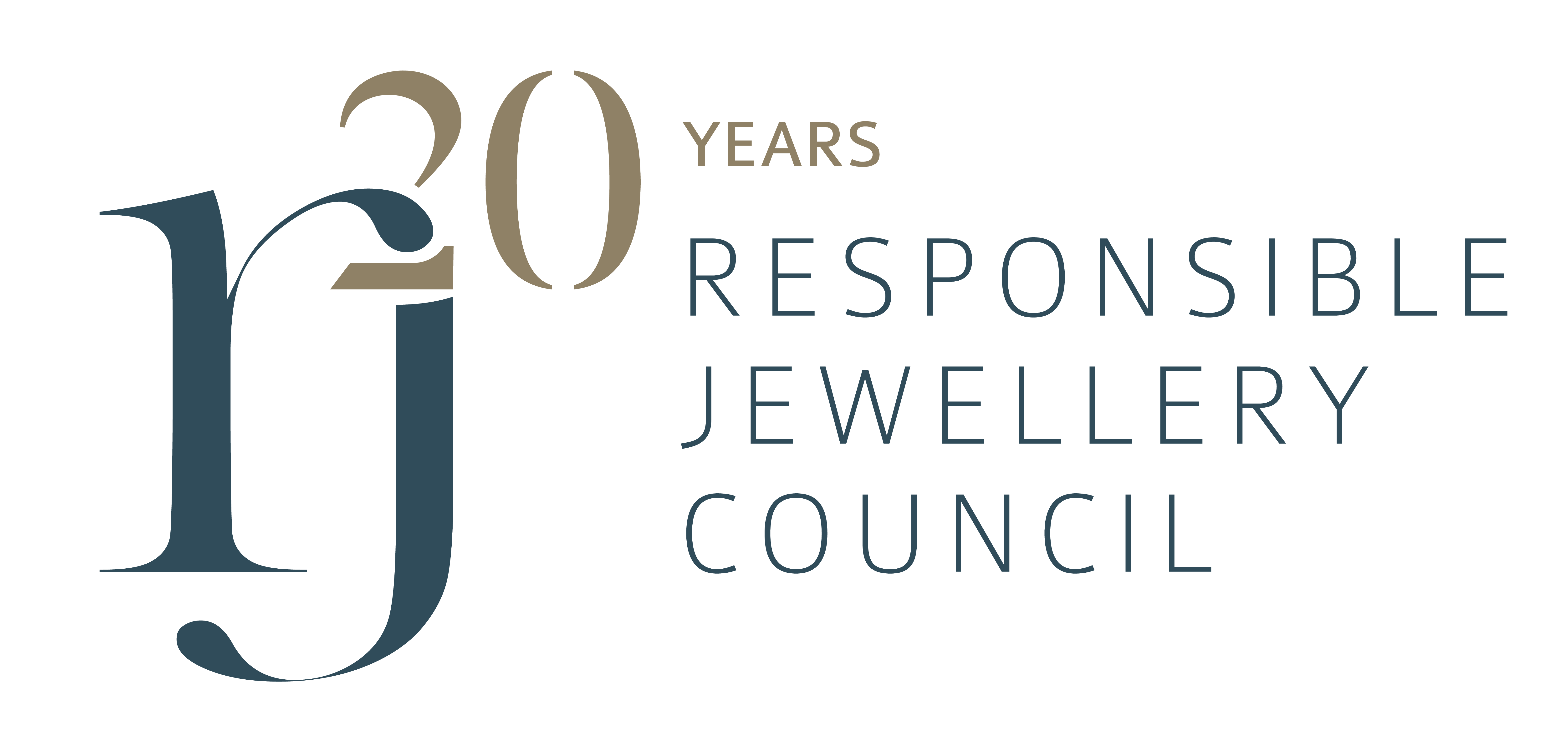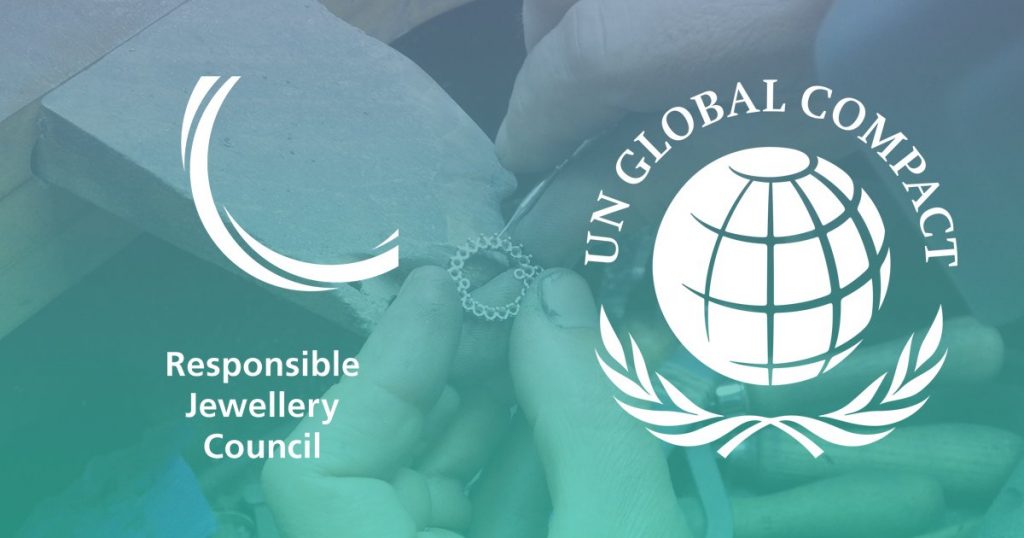The Responsible Jewellery Council has entered into a partnership with the United Nations Global Compact to develop best practice impact case studies for building awareness and educating key stakeholders across the jewellery supply chain from mine to retail on how businesses can contribute to the Sustainable Development Goals (SDGs). The Responsible Jewellery Council Code of Practices standard aligns with the 17 SDGs and the Ten Principles of the UN Global Compact through a series of requirements covering:
- Legal & regulatory compliance
- Responsible supply chains, human rights and due diligence
- Labour rights & working conditions
- Halth, safety & environment
- Gold, silver, PGM, diamonds & coloured gemstones – disclosure
- Responsible mining
“We welcome this partnership with the UN Global Compact. Since 2005, the RJC has taken a leading role on sustainable development in the global jewellery supply chain. We believe in a model of shared values and we see the principles of the UN Global Compact and the SDGs as the foundation for shaping a better world,” says David Bouffard, RJC Chairman.
“As the RJC will celebrate 15 years of legacy in 2020, it is the right momentum to look ahead for the next 15 years. We must work closely together with the Global Compact and all our stakeholders to drive global action on the SDGs. That is our moral responsibility”, says Iris Van der Veken, Executive Director. Key outputs from the partnership include an RJC technical workgroup on impact 2020-2030, training webinars on best practices, research tools on driving the SDGs throughout the industry with a special emphasis on:
- SDG 5 Gender Equality
- SDG 8 Decent Work & Economic Growth
- SDG 12 Responsible Consumption & Production
- SDG 13 Climate Action
- SDG 17 Partnerships for the Goals
Over the next two years, the platform will report on SDG progress and support businesses in applying the guidance in their operations with the help of case studies, hands-on workshops and a continued dialogue with policy makers and investors.


